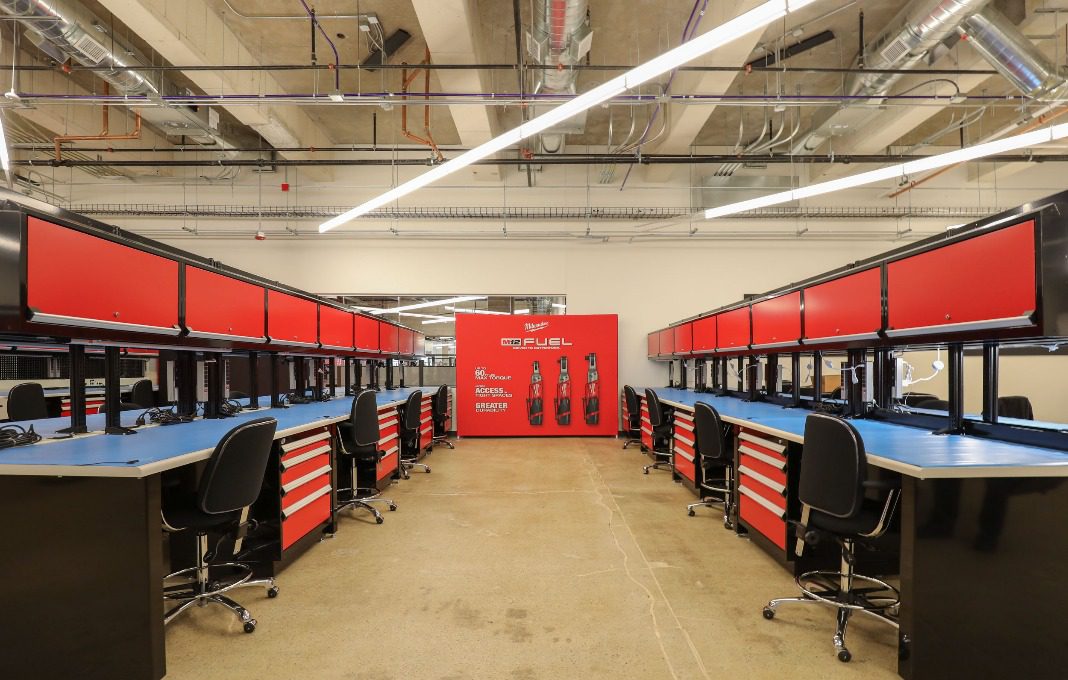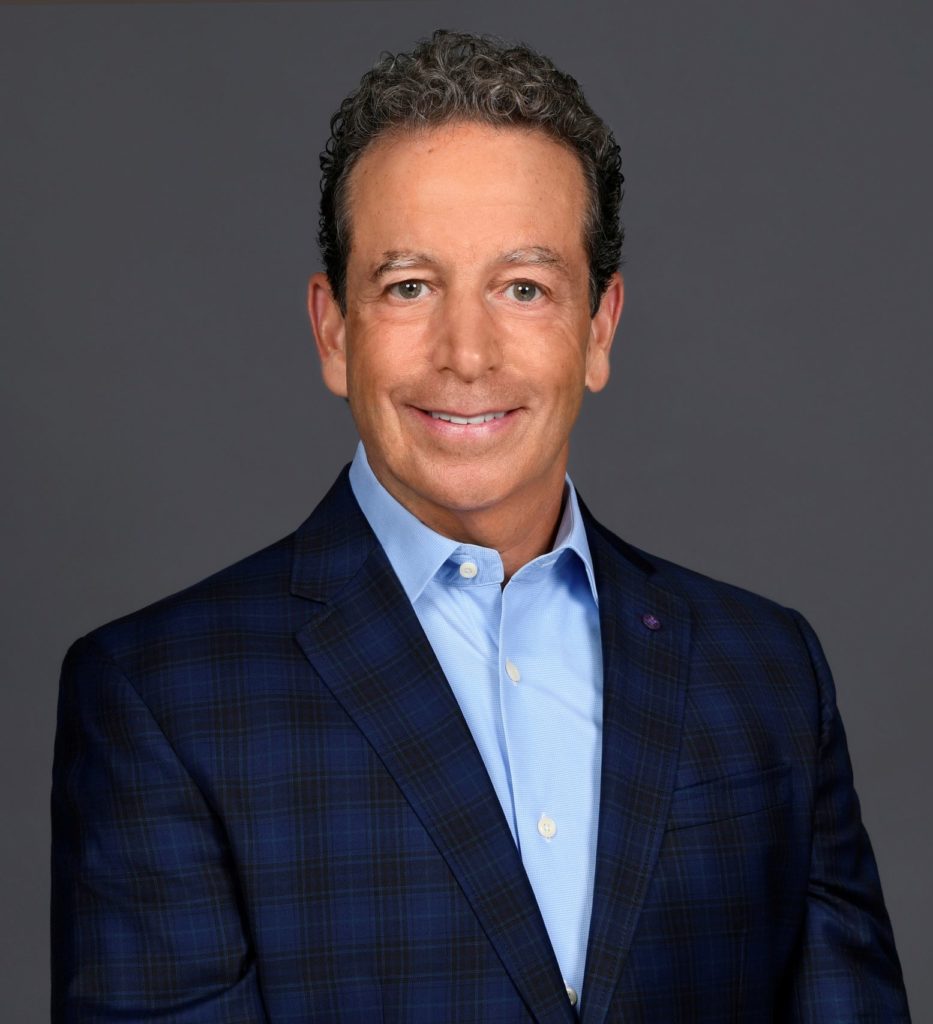Milwaukee Tool Thrives By Harnessing Electrification, Digitization


 Milwaukee Tool became one of the fastest-growing companies in the Midwest by taking an “outside-in” approach to innovation that has solidified its relationships with customers while transforming the company into a poster child for how legacy manufacturers can win in the era of product and process electrification and digitization. There’s much for manufacturing CEOs to learn from its approach.
Milwaukee Tool became one of the fastest-growing companies in the Midwest by taking an “outside-in” approach to innovation that has solidified its relationships with customers while transforming the company into a poster child for how legacy manufacturers can win in the era of product and process electrification and digitization. There’s much for manufacturing CEOs to learn from its approach.
Now the power-tool company—an iconic brand whose wares are strapped into the work holsters of hundreds of thousands of tradespeople around the world—is trying to further ground its successful approach by opening an engineering and product-development office in Chicago.
Mimicking the rationale and design of new facilities Milwaukee Tool has been building in Wisconsin, including a new headquarters in the downtown of its namesake city, the company is investing $14 million in renovating 70,000 square feet in the recently restored, historic Old Main Post Office in downtown Chicago.
“Think about product developers today and think about this as a business,” Steve Richman, group president for Milwaukee Tool, which is owned by Hong Kong-based Techtronic Industries, told Chief Executive. “Electrical engineers are the foundation of our product today, so we’re trying to recruit the best electrical engineers, mechanical engineers and software and firmware developers to drive product development in a holistic way.
“The Chicago office is our first spoke, and our viewpoint is we need the best development talent, and there are a lot of people there who are either employed by other companies or who are graduating. There aren’t a lot of companies in the Chicago market that do the type of work we do.”
Milwaukee Tool is a 98-year-old manufacturer of power tools such as drills, sanders and hedge trimmers that are aimed largely at professional trades but which also increasingly have been making inroads with American consumers via merchandising in Home Depot and other outlets. Its sales have grown by an average of 20% year-over-year annually for the last decade.
Its legacy claim to fame has been reliable brands such as the Sawzall reciprocating saws it invented in the 1950s, but over the last several years under Richman, Milwaukee Tool has been revolutionizing its product lineup with technological advancements that have been led by its own, pioneering lithium-ion batteries for cordless tools, which provide as much power —and hugely greater convenience—as their corded and gas-powered predecessors.
Milwaukee Tool also has been building in wireless connectivity and artificial intelligence so that, for instance, it can design geofencing capabilities into tools that won’t work outside a digitally prescribed area, thwarting theft from construction sites.
The approach of continually integrating more power density into a smaller space while adding more on-board intelligence mimics what Silicon Valley companies have done with smartphones and what Detroit’s and other automakers have done with cars.
“We were trying to find a perspective of how we were going to compete” with global giants in many of its categories, ranging from Hilti to 3M, said Richman, who has been in his role at Milwaukee Tool for 15 years after a career that included positions at Robert Bosch Tool and Werner.
Techtronic brought in Richman not long after the company bought Milwaukee Tool from Sweden’s Atlas Copco AB in 2004. The company manufactures in Wisconsin and elsewhere in the U.S. and in factories in Asia and elsewhere, with headquarters in Brookfield, Wisconsin, and R&D centered in that state.
“Strategically, the way for us to win was to disrupt,” Richman said. “And our viewpoint on disrupting was to become a solution provider to core trades, driving productivity and safety on the job. That led us to not be an electric or hand-tool or accessory-tool company, but how could we become a wraparound solutions provider and partner to each one of those core trades? We had a global patent on our lithium technology, which was the beginning of our core business and how we thought about ourselves.”
In today’s era in which electrification, software and IoT have become integral to success for many manufacturers with legacy strengths in their industries, Milwaukee Tool’s perfection of lithium-ion technology around the time Richman arrived was a huge development.
“Lithium batteries weren’t well-advanced then because they had horrible hot-weather performance, and cold-weather performance, and poor cycle life,” Richman explained. “The rest of the world believed it wasn’t going to replace [nickel-cadmium batteries for power-tool applications. “But when our team came in with expanded resources, we focused on how we were really going to make this technology work for us in power-tool applications. Meanwhile, a lot of competitors were stuck with ‘inventor’s dilemma,’ and were so married to NiCad that they didn’t switch.”
This decision, Richman explained, “allowed us and our talented engineering teams to understand all aspects of battery technology way earlier than any in our competitive set. That gave us clear competitive advantages. And [Techtronic] owned 50% of a company y that made its own cells.”
Beside the fateful decision to lean into lithium-ion technology early on, here are some other ways Richman — who was, for instance, named 2021 Executive of the Year by the Milwaukee Business Journal – has stacked success for Milwaukee Tool:
• Start with the customer. “We became an ‘outside-in’ company,” Richman said, “by understanding who our users are. We have armies of people — marketers, engineers and designers — who are out on job sites globally, understanding the pain points of users and understanding how we can help them drive productivity and safety on the job. Their job is to understand what end users do and work with them on curriculum and training facilities too.”
• Take an all-of-the-above approach to development. As part of its reaching-out approach, Milwaukee Tool seeks strategic partners to approach the future of technologies for tools and accessories, including working with electronics companies for chips applications and supplies. It has invested in small suppliers and works with universities
But the company also has “armies of [our own] people looking at multiple aspects of technology, making sure we can drive the IP around it,” Richman said. “It’s not about today but about five to 10 years down the road. We understand where the world is going and get in front of it from a technology viewpoint.”
• Leverage automation. Milwaukee Tool wasn’t a highly automated manufacturing operation. “Now, we’ll leverage automation in all aspects of our business throughout the globe,” Richman said. “With some products, our ability to automate is the ante to be able to manufacture that product to the standards we need. [But] we have to evaluate where it makes sense to automated from a quality, consistency and performance standpoint.”
• Emphasize culture. Richman noted his company’s high ratings by employees on Glassdoor as a place to work. “Our culture allows us to attract the best people,” he said. It includes a strong propensity to promote from within and a “one-team mentality. “It’s also a very candid culture that drives speed, agility and urgency.”
• Do spadework on the supply chain. Milwaukee Tool has gotten pretty much unscathed through today’s muddling of supply chains across the economy, Richman said. The main reason is that “our relationships with key manufacturers of chips and batteries and electronics didn’t start for us” with the last couple of years. “We’ve been having quarterly meetings with all of those people for the past 14 years, and our growth of more than 20% year after year has given those partners confidence that we’re a growth company and will continue to be a growth company.”

Chief Executive Group exists to improve the performance of U.S. CEOs, senior executives and public-company directors, helping you grow your companies, build your communities and strengthen society. Learn more at chiefexecutivegroup.com.
0

1:00 - 5:00 pm
Over 70% of Executives Surveyed Agree: Many Strategic Planning Efforts Lack Systematic Approach Tips for Enhancing Your Strategic Planning Process
Executives expressed frustration with their current strategic planning process. Issues include:
Steve Rutan and Denise Harrison have put together an afternoon workshop that will provide the tools you need to address these concerns. They have worked with hundreds of executives to develop a systematic approach that will enable your team to make better decisions during strategic planning. Steve and Denise will walk you through exercises for prioritizing your lists and steps that will reset and reinvigorate your process. This will be a hands-on workshop that will enable you to think about your business as you use the tools that are being presented. If you are ready for a Strategic Planning tune-up, select this workshop in your registration form. The additional fee of $695 will be added to your total.

2:00 - 5:00 pm
Female leaders face the same issues all leaders do, but they often face additional challenges too. In this peer session, we will facilitate a discussion of best practices and how to overcome common barriers to help women leaders be more effective within and outside their organizations.
Limited space available.

10:30 - 5:00 pm
General’s Retreat at Hermitage Golf Course
Sponsored by UBS
General’s Retreat, built in 1986 with architect Gary Roger Baird, has been voted the “Best Golf Course in Nashville” and is a “must play” when visiting the Nashville, Tennessee area. With the beautiful setting along the Cumberland River, golfers of all capabilities will thoroughly enjoy the golf, scenery and hospitality.
The golf outing fee includes transportation to and from the hotel, greens/cart fees, use of practice facilities, and boxed lunch. The bus will leave the hotel at 10:30 am for a noon shotgun start and return to the hotel after the cocktail reception following the completion of the round.